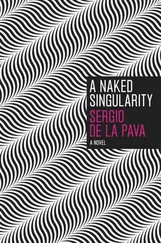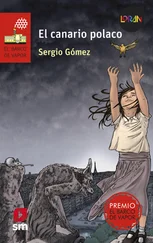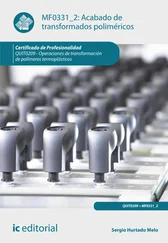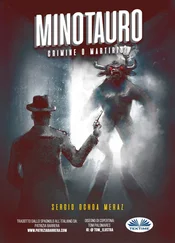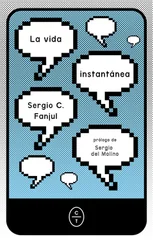Sergio De La Pava - Personae
Здесь есть возможность читать онлайн «Sergio De La Pava - Personae» весь текст электронной книги совершенно бесплатно (целиком полную версию без сокращений). В некоторых случаях можно слушать аудио, скачать через торрент в формате fb2 и присутствует краткое содержание. Год выпуска: 2011, ISBN: 2011, Издательство: Xlibris, Жанр: Современная проза, на английском языке. Описание произведения, (предисловие) а так же отзывы посетителей доступны на портале библиотеки ЛибКат.
- Название:Personae
- Автор:
- Издательство:Xlibris
- Жанр:
- Год:2011
- ISBN:9781456876968
- Рейтинг книги:3 / 5. Голосов: 1
-
Избранное:Добавить в избранное
- Отзывы:
-
Ваша оценка:
- 60
- 1
- 2
- 3
- 4
- 5
Personae: краткое содержание, описание и аннотация
Предлагаем к чтению аннотацию, описание, краткое содержание или предисловие (зависит от того, что написал сам автор книги «Personae»). Если вы не нашли необходимую информацию о книге — напишите в комментариях, мы постараемся отыскать её.
— from Personae
Personae — читать онлайн бесплатно полную книгу (весь текст) целиком
Ниже представлен текст книги, разбитый по страницам. Система сохранения места последней прочитанной страницы, позволяет с удобством читать онлайн бесплатно книгу «Personae», без необходимости каждый раз заново искать на чём Вы остановились. Поставьте закладку, и сможете в любой момент перейти на страницу, на которой закончили чтение.
Интервал:
Закладка:
6 He moves until genuine confusion sets in. The possibility grows that any future step will estrange him further from his destination.
7 He knows he should stop, rest until the rain stops. His body is heavy with the desire to stop moving and finally he lets it come to rest under a natural shelter from the storm.
8 His immobility brings on two sensations. He feels now as if his body were collapsing in on itself, ebbing into finality. His lack of forward movement also creates doubt. For the first time he practices asserting that he will fail and what that will engender in his soul. The darkness of that spreads in him and he feels it as if it were true and not hypothesis.
9 If he fails it will be a corporal failure, nothing more. He looks himself over so he can more accurately predict whether his body is going to endure what’s necessary but this is really a performance without an audience because he knows that no matter what he sees or feels he is not going to allow that collection of flesh on bone to quit.
10 What he sees, everywhere on him, is injury. The one he attends to now was caused by a savage spike embedded into his foot then snapped off before he could remove it, its pointed edge starting to come out the top. Problem is by walking kilometers on it his percussive steps have sufficiently buried the spike that it cannot be pulled out just manually.
11 He is looking at the blade of the knife and wishing that what follows could somehow be avoided. It cannot.
12 He pushes the point of the blade into the red and black hole in the bottom of his foot. He almost screams but instead grunts through the branch he’s placed between his teeth.
13 He tears at the flesh that’s seizing the spike until he has almost doubled the opening. Now he reaches in with his left hand and, not bearing to look, begins to pull the spike out; the combination of muscle, bone, and cartilage resisting every millimeter.
14 The sensation is repetitive in its agony. As the spike vacates an area that area wants a return to normalcy so the flesh seeks out component flesh that they may reunite in healing. The sensation then is a form of relief but it is a relief of such confusing severity that it is indistinguishable from agonizing pain quickly running the course of his entire bloodstream.
15 When it is almost entirely out it gets stuck. The spike has frayed open and caught on the ravaged remains of his foot. He lets go of it and looks up. Would it be so bad really if he just absorbed the spike as a new part of his body? He takes an exaggerated inhale then before he can even begin to doubt pulls it out as if in anger.
16 His scream while clearly not animalistic is also not recognizably human. As if the world itself were being wounded to its core and the merger of its physical pain and the suffering that comes with the realization of mortality could only emerge as cosmic guttural plaint.
17 When the scream and its ghostly echolalia finally die away he stares at the spike in his hand. The flesh it tore asunder falls off leaving him to hold the lifeless instrument of puncturing devastation and wonder if it hadn’t better torn into his heart. He uses it to cut off a section of his shirt which he then ties around his foot so tight he emits another though far lesser scream. Then he puts the shoe back on tight as possible and gets fetal.
18 It is in that position that he sees them for the first time. The telltale color of the berries brings immediately to his mind the sight of listless smiles. He recognizes them as the berries the weak people in his village crave. They crave without end so others go into the jungle he now sits in, risking health and sanity, to retrieve then sell them to the cravers in transactions that bear no resemblance to commerce but a more than passing one to planned assaults. They say it’s for pain but few are left who even pretend to believe that and he is on record as having repeatedly said that should he lose an arm and be offered some in response he will use the remaining one to throw them back.
19 He is not tempted. He knows, intimately, what pain is. It can be borne. It is really the knowledge of pain that causes genuine suffering and it is this knowledge that substances like the berries address, not any physical phenomena or process.
20 But alongside the physical world runs the world of thought and if you go to it for respite from this place be careful you don’t uncover an even deeper level of grim suffering.
21 He thinks of connection and separation, enhancement and loss, and when he’s done, hours later, he reaches out, grabs a handful of berries, and, apologetically, moves them into his mouth.
* * *
FOR her the question of God, along with all resulting and even antecedent questions, really reduced to the question of whether or not you entered a particular structure on Sundays.
2 Her husband had helped build the church then never again entered it and this troubled her deeply.
3 She had a list of matters requiring worry because she was one of those people. Thing about the list was that, perhaps in conformance with the human capacity for anxiety, its enumerations remained constant. So quite often a worry would disappear, Selena would heal for example, seemingly only to make room for the magical appearance of its replacement.
4 One list mainstay was the soul of her husband. He would counter, always, that attendance anywhere was not a matter of the soul. That her own belief system relied on omnipresence so that he was able to attend to these matters really wherever he found himself. This she found unpersuasive. She was smarter, he knew, than him. Anything he bothered to formulate in this area she could eviscerate almost offhandedly. These logical eviscerations, however, had no effect on his conduct.
5 But more than even faith she was a woman of hope. No amount of empirical evidence could discourage her into defeated silence. So every Sunday morning, once the remnants of the latest truly remarkable arepas had been cleared, she dressed Selena in some of her best, maybe even a subtle dash of makeup, did the same to herself, and renewed her campaign. It went like this. First, she would affect certainty where even minimal success was highly improbable. Something like audibly wondering when he was going to interject some urgency into his preparation as the time for Mass was quickly approaching. When that failed, as it invariably did, she would allow some time to pass then approach again. Expressing concern for his soul she would place her hands on his chest as if she were trying to tactilely caress it.
6 On nothing else would he say no. On this he never actually said no. But Mass would start and it was his absence Selena and her mother would sit next to.
7 The tragedy of all this of course is that he would’ve only had to say yes once provided it was the last time she asked.
* * *
CREATION is often a nebulous process not susceptible to easy categorization at the end of which a prototypical single creator emerges. It is therefore not now being argued that he was the inventor or originator of the Cuban Sandwich. Only that he was one of the first to recognize the brilliance of that item and that he perfected it into its Platonic ideal thereby achieving perhaps Foremost Popularizer status, at least in the New York area. And the first time he did that perfecting was as he waited with increasing nerves for the return of Marybeth.
2 But first here’s the promised more on why Nicole Grunderson’s sudden empathic revelation made her feel “[a]s if a global surveillance of her had suddenly ceased.” Id .
3 Take as example the moments when a loose group of people will coalesce to sing the mind-numbing Happy Birthday song with you as subject and object. Or those initially charged moments when you first hear your voice addressing a group of people. These are generally unpleasant moments, the extent of the unpleasantness determined by certain personality factors etcetera, but nonetheless universal ones. The discomfort stems from the weight of the eyeballs on you but there’s something odd about this fact. If everyone, to themselves, is the center of their universe then why not thrill at the external world’s admittedly brief recognition of that fact? The only conclusion to be logically drawn is that it’s no fun being closely observed, that is, actually being the universal center. And this assertion seems supported by those (the wildly famous for example) who exist in something like the happy birthday situation an extraordinary amount of their time. Let’s say they don’t seem so well-adjusted and leave it at that.
Читать дальшеИнтервал:
Закладка:
Похожие книги на «Personae»
Представляем Вашему вниманию похожие книги на «Personae» списком для выбора. Мы отобрали схожую по названию и смыслу литературу в надежде предоставить читателям больше вариантов отыскать новые, интересные, ещё непрочитанные произведения.
Обсуждение, отзывы о книге «Personae» и просто собственные мнения читателей. Оставьте ваши комментарии, напишите, что Вы думаете о произведении, его смысле или главных героях. Укажите что конкретно понравилось, а что нет, и почему Вы так считаете.

